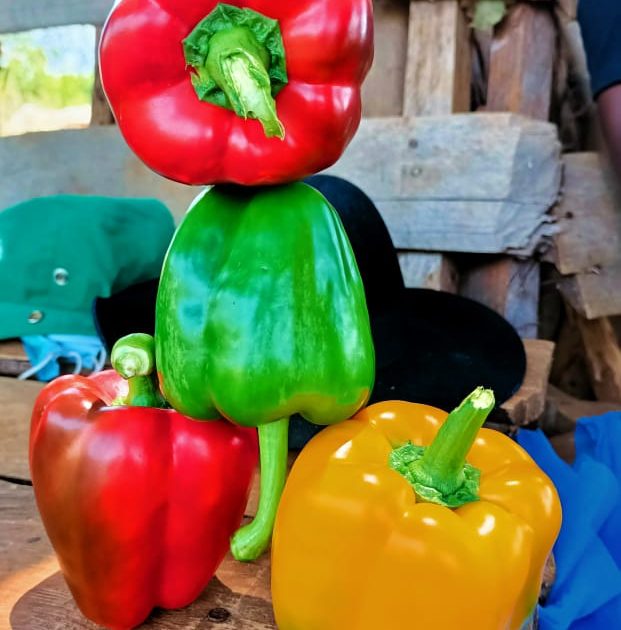As high levels of unemployment continue to affect many young people in the country, some youth have increasingly found ways of earning a livelihood and creating employment to others through agribusiness.
Catherine Kamanu, 30, opted to abandon her banking job and venture in horticulture farming at Matithi area in Murang’a East sub county.
Kamanu grows capsicum, cucumbers and asparagus in her 8 acres’ piece of land which she leased in 2013 after quitting her accountant job in one of the local banks.
“I leased a piece of land and started farming as a side hustle in 2013, but later decided to quit my banking job and venture full time into farming” states Kamanu as she tends to her capsicum plants.
The mother of one who holds a Master’s degree in finance from the University of Nairobi notes that she did not have any knowledge on farming and therefore relied majorly on agricultural officers and online reading.
“I did a lot of research both online and through agricultural officers as farming requires a lot of advice from the experts. I resolved to grow maize, tomatoes and okra in the open field,” adds Kamanu.
After several trials, soil tests and a borehole dug to irrigate her farm, Kamanu settled on capsicum farming in her green houses.
She also set up a small dam using polyethene papers to compliment the borehole water, thus her farm is ever green in and out of seasons.
In my farm, Kamanu narrates, “I grow the yellow, red and green capsicum commonly known as hoho.”
The colored capsicums are mostly used in salads and are quickly becoming common with consumers. The green ones are used in cooking and fetch way less than the coloured ones whose price is three times higher than that of green capsicum.
Kamanu’s biggest market for the capsicums is Nairobi. She observes that sometimes she takes her produce to the buyers and other times buyers come for produce from her farm.
The trained accountant admits that it does not come easy and one has to be patient in order to reap big from horticulture.
Her greenhouse plays host to over 2,000 plants of capsicum whereby she harvests an average of 300kgs with a kilo going for between Sh. 100 and Sh. 200. Notably, the price of colored capsicums can go as high as Sh. 300 per kilo.
Kamanu’s farm overflows with eager youth whom she mentors on capsicum farming.
She encourages the youth to embrace farming and not be too focused on the elusive white-collar sector.
“Farming is not a reserve for the older people, embrace it, start small, be patient, do your research well and it will eventually pay,” she further narrates.
By Florence Kinyua and Bernard Munyao





